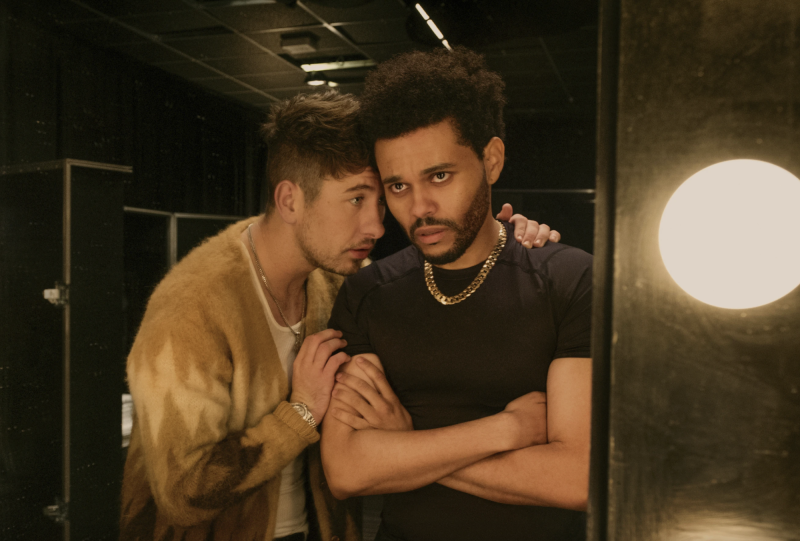But how much of The Weeknd is here, really? In his first leading role in a feature film, directed by Trey Edward Shults, Tesfaye plays a fictionalized version of himself, an insomniac musician (as made explicitly clear in the “Wake Me Up” leitmotif, where he sings, “Sun is never rising / I don’t know if it’s day or night”). He’s marred by a recent breakup from an ex portrayed in a cruel voicemail message (“I used to think you were a good person,” she says) and a hedonistic lifestyle, instigated by his superficial friend-manager Lee, played Barry Keoghan.
Shortly after Tesfaye loses his voice, a psychosomatic ailment, he meets superfan Amina, portrayed by Jenna Ortega. She offers temporary comfort and, in return, is afforded no agency. She exists for him. Soon, the uninspired horrors begin, culminating in what recalls the torture scene in Reservoir Dogs with less violence. Instead, Amina — when she is not weeping; I urge all viewers to keep a “cry count” and consider what feminist blogs might have to say — lip-syncs some of The Weeknd’s biggest hits back to him, explaining that they’re all about “emptiness and heartbreak.” Woven throughout is some conversation about absent fathers and fear of abandonment, with unearned delivery and first-draft acuity — something gesturing at depth without piercing the surface.
According to press materials, Amina and Lee are not real people but representations of Tesfaye. She is meant to represent Tesfaye’s disconnected, “deeper emotional self” — and Lee, his public persona. That is not made explicitly clear in the film, except in a very generous reading of the ending. Subtext only works when there is context to back it up, otherwise, you are left with Hurry Up Tomorrow: an exciting vanity project with surrealist imagination but stiff writing, no stakes, limited emotional weight and an unclear narrative.


